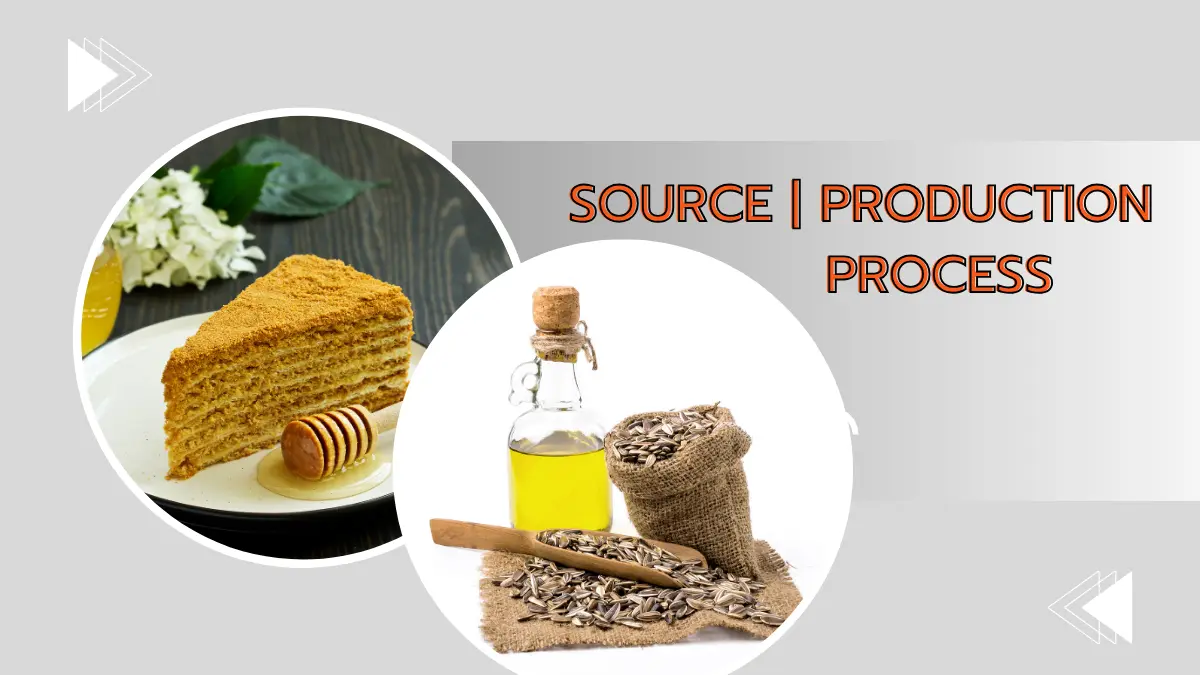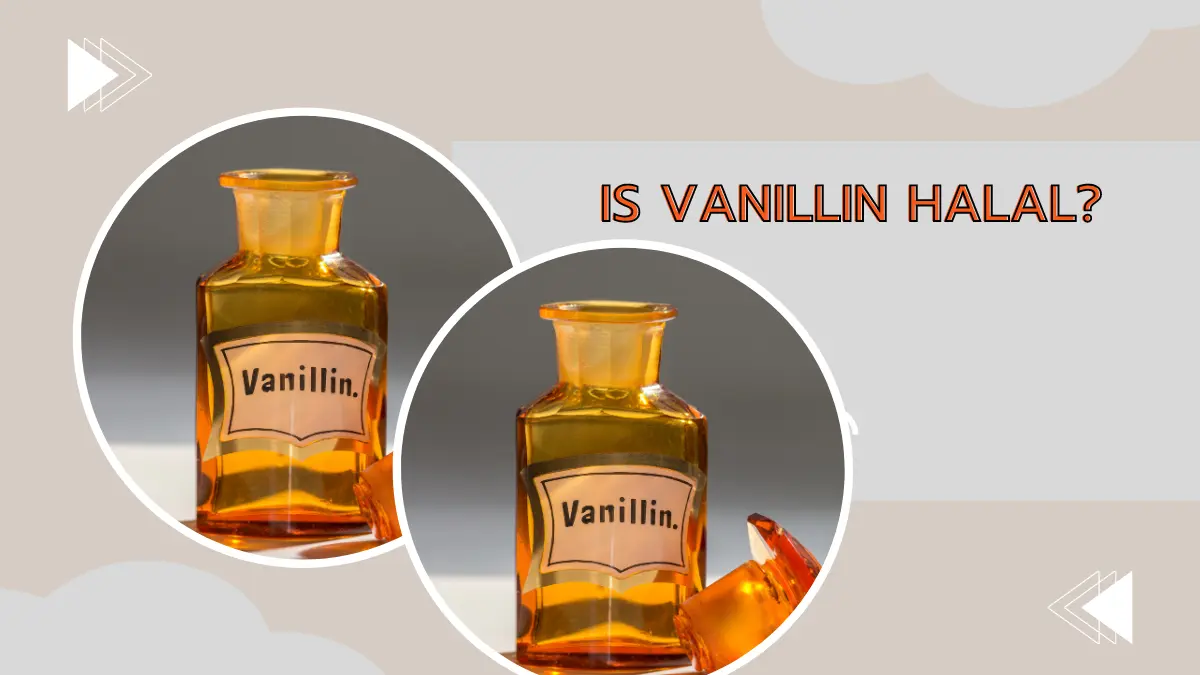When you want to add extra taste to your food, the name of Vanillin may come to the fore. Because vanillin is a compound popular as a taste agent in various diet. However, if you know whether Vanillin is halal or not, you will be able to use it in your favorite food.
The worldwide influences their dietary preferences for Muslims. In order to determine the Islamic status of vanillin, it is essential to discover the source, production method and regulatory consideration.
Short answer
Yes, Natural Vanillin is Halal. Vanillin from beans does not respond to the question of being lawful. Because Vanillin itself is a permissible substance in Islamic dietary laws. And being synthetic vanillin halal depends on its source, material and production process.
If synthetic vanillin halal sources such as liginin or petrochemicals are derived from plant-based predecessors, it is halal. However, if the production process involves non-halal sources or methods, such as cleanliness and purity is not loyal to the Islamic principles of purity, then it is forbidden.
Introduction to Halal Vanillin: Exploring Purity and Flavor
In flavourings, few compounds evoke the universal appeal and sensory delight as vanillin does.
Revered for its sweet, aromatic profile reminiscent of vanilla, vanillin has become a cornerstone ingredient in countless culinary creations worldwide.
However, for individuals adhering to Islamic dietary laws, ensuring the Islamic status of vanillin is paramount. Thus, let us embark on a flavorful journey to unravel the nuances of permissible vanillin.
The Essence of Vanillin
Vanillin, the primary flavor component of vanilla, captivates with its enchanting aroma and delectable taste.
Historically sourced from vanilla beans, vanillin’s allure has transcended geographical and cultural boundaries, permeating diverse cuisines and industries.
Natural Origins
Vanillin’s journey begins in the fertile soils of tropical regions, where vanilla orchids flourish under the sun’s warm embrace.
Through meticulous cultivation and artisanal craftsmanship, the aromatic pods yield their precious cargo – natural vanillin.
Extracted through traditional methods, this essence of vanilla embodies purity and authenticity, making it inherently halal.
Innovation and Synthesis
In response to increasing demand and logistical challenges, scientists pioneered the synthesis of vanillin through innovative means.
Synthetic vanillin, crafted from plant-based precursors or petrochemical sources, represents a triumph of modern chemistry.

While its origins may diverge from those of natural vanillin, adherence to halal principles in sourcing and production ensures its compliance with Islamic dietary laws.
Halal Certification
Central to the halal integrity of vanillin is the certification process, overseen by reputable halal certification bodies.
These organizations rigorously assess the entire production chain, from raw material procurement to manufacturing practices, to ascertain compliance with halal standards.
For consumers seeking assurance, the presence of recognized halal certification symbols on product labels serves as a beacon of trust and reliability.
Culinary Versatility
From delicate pastries to savory sauces, permissible vanillin infuses an array of dishes with its signature warmth and richness.
Its versatility extends beyond the kitchen, enriching fragrances, cosmetics, and pharmaceuticals with its captivating essence.
Each application reflects a harmonious blend of flavor and faith, honoring both cultural traditions and halal principles.
Empowering Consumer Choice
As discerning consumers, the power lies in our hands to make informed decisions that align with our values.
By choosing halal-certified vanillin products, we affirm our commitment to purity, authenticity, and ethical sourcing.
Through education and advocacy, we foster greater awareness within the industry, championing transparency and accountability.
Is vanillin halal?
Determining the halal position of natural or synthetic type vanillin is involved in Islamic dietary laws and policies. There is an analysis here to understand it clearly.
Source
Natural vanillin: In its natural form, vanilla beans are permissible in the vanillin. This type of vanilla is a permissible substance in Islamic laws. It makes derivative vanillin halal as default.
Synthetic vanillin: The halal status of synthetic vanillin depends on the source material and production process. If synthetic vanillin permissible sources such as liginin or petrochemicals are derived from plant-based predecessors, it is usually lawful.
However, if the production process involves forbidden sources or procedures, such as non -compliance with Islamic principles, then halal status can be compromised.
Production process
Halal consent: For synthetic vanillin, it is very important to ensure halal consent throughout the production process. These include the use of halal-renowned raw materials, adherence to the Islamic principles of hygiene and purity during production, and avoiding any non-halal substances or pollutants.
Adivists and contributors
Halal Certificate: Whether vanillin products, natural or synthetic, should ideally go through halal certificate to guarantee consent with Islamic dietary laws.
This certificate confirms that the product and its components fill the required halal values, including non-halal addivals or absence of pollutants.
Regulator
Certificate Agency: Various permissible credentials and companies oversee the halal credentials of food products, including people with vanillin worldwide.
These companies evaluate the entire production process from raw material sourcing to production practice to ensure consent with halal requirements.
It is advisable to find a symbol or label -carrying products recognized for determining halal status.
Consumer Awareness:
Inform
Muslim customers play an important role in ensuring the permissible integrity of vanillin and other food additions to ensure the purchase of informed.
These include looking for products, including halal certificates, searching the halal status of manufacturers or credentials if necessary, and updates on relevant regulations and guidelines.
Conclusion
Although the natural vanillin obtained from vanilla beans is inherently lawful. But the permissible condition of synthetic vanillin depends on various factors, including its source, production process and obedience of permissible values.
By obtaining halal certificates and spreading transparency in their practice, manufacturers can fill the dietary preferences of Muslim customers and increase confidence in their products.
Similarly, customers can support Halal policies by choosing certified halal options and suggesting more awareness and consent in the industry.
FAQs
Is natural vanillin halal?
Yes, natural vanillin derived from vanilla beans is permissible. since vanilla itself is a permissible substance in Islamic dietary laws.
What about synthetic vanillin?
The halal status of synthetic vanillin depends on various factors such as the source material and production process. If synthetic vanillin is derived from permissible sources and manufactured in compliance with Islamic principles of cleanliness and purity, it can be permissible.
How can I determine if vanillin is halal?
Look for vanillin products that have been certified as halal by reputable halal certification bodies. These certification organizations rigorously evaluate the entire production process to ensure compliance with halal standards.
What are some halal sources of synthetic vanillin?
Synthetic vanillin can be derived from halal sources such as plant-based precursors like lignin or certain petrochemicals. Manufacturers may specify the source of their vanillin, or it may be indicated on the product label.
Are there any additives in vanillin that I should be aware of?
It’s important to ensure that vanillin products are free from any Haram additives or contaminants. Halal-certified vanillin undergoes thorough scrutiny to ensure it meets halal standards and is free from impurities.
Can I trust products labeled as halal vanillin?
Products labeled as halal vanillin should ideally be certified as such by recognized halal certification bodies. Consumers can trust these labels as they indicate that the product has undergone scrutiny to ensure compliance with halal standards.
Are there different opinions among scholars regarding the Halal status of vanillin?
While the majority of scholars agree that natural vanillin is permissible, there may be differing opinions regarding synthetic vanillin depending on the manufacturing process and the source of raw materials. It’s advisable to consult with knowledgeable authorities or scholars if there are any uncertainties.
How can I ensure I’m making Halal choices when it comes to vanillin?
To make halal choices, look for vanillin products that bear halal certification symbols or labels from reputable certification bodies. Additionally, consumers can reach out to manufacturers or certification bodies for clarification on the halal status of specific products if needed.

